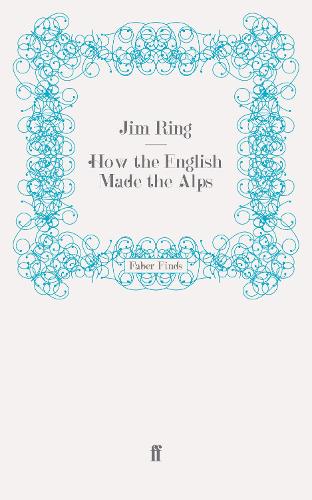
How the English Made the Alps
(Paperback, Main)
Publishing Details
How the English Made the Alps
By (Author) Jim Ring
Faber & Faber
Faber & Faber
17th February 2011
Main
United Kingdom
Classifications
General
Non Fiction
European history
949.4706
Physical Properties
Paperback
320
Width 135mm, Height 216mm, Spine 23mm
400g
Description
For English read British which is not to quibble with the title but, as Jim Ring himself explains, 'During the period on which this book focuses, it was the custom - in the words of a Scot - ''to let the part - the larger part - speak for the whole.'' Those countries which received them - France, Italy, Austria, Germany, and above all Switzerland - all talked of the English, and the presence of the English in the Alps was precisely so described. To use the term British would thus have been an anachronism.' but nearer home there was a quieter conquest taking place. Gradually the English were taking over the Alps, scaling their peaks, driving railways through them, and introducing both winter sports and those quintessential English institutions - tea, baths, lawn tennis and churches - to remote mountain villages. when poets such as Byron and Shelly wrote of the mountains with awed delight, through the great days of the 1850s and 1860s and the formation of the Alpine Club, to the inter-war years when the English assured the future prosperity of the alpine resorts by virtually inventing and then popularizing downhill-skiing. gentleman-adventurers, the invalids, the aristocrats, eccentrics and mountain-scramblers - vividly to life. Daily Mail a fascinating subject' Guardian
Author Bio
Jim Ring is an author and film-maker. Four of his titles are being reissued in Faber Finds: Erskine Childers; How the English Made the Alps; We Come Unseen: The Untold Story of Britain's Cold War Submariners; Riviera: The Rise and Rise of the Cte d'Azur., Jim Ring's 1996 dbut, Erskine Childers, won the Marsh Prize for biography. It was followed by How the English Made the Alps which was described as 'fascinating' by the Daily Telegraph and 'evocative and entertaining' by the Financial Times. His collective biography of Britain's leading Cold War submariners, We Come Unseen, won the Mountbatten Prize and was called 'a welcome acknowledgement of one of the Cold War's little-known aspects' by the Sunday Telegraph.
